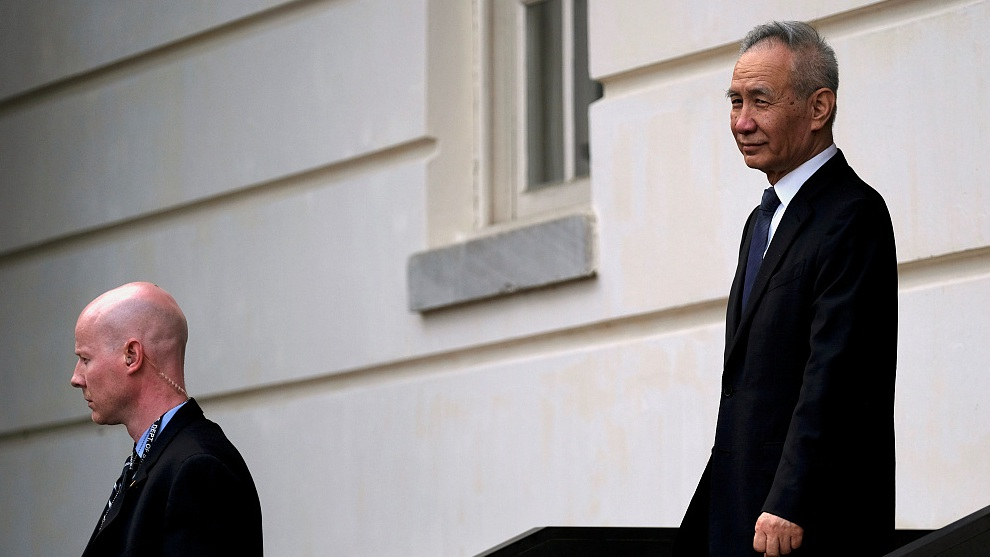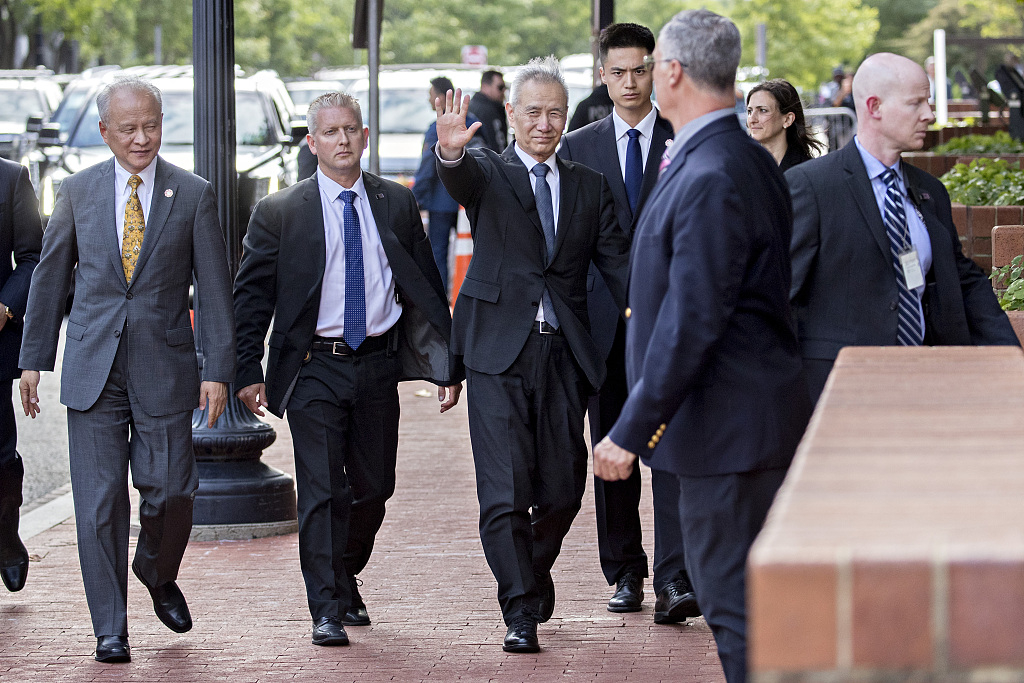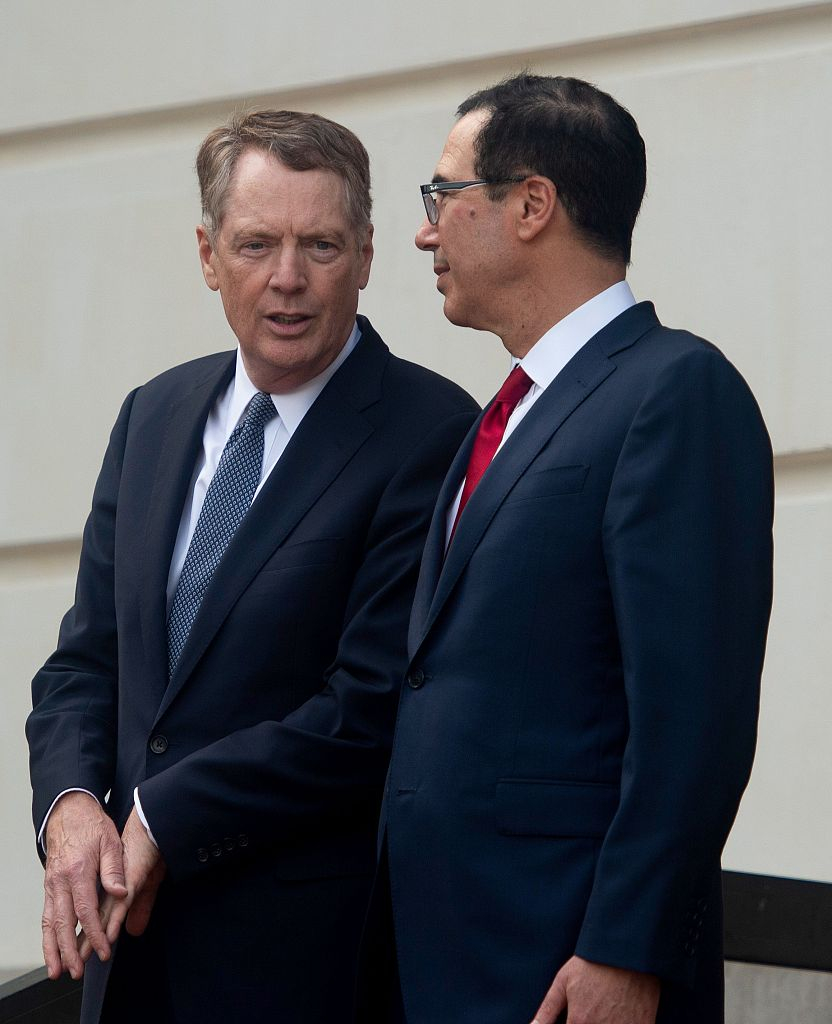
Opinion
23:10, 11-May-2019
A 'principled issue' in China-U.S. trade talks
John Gong

Editor's note: Dr. John Gong is a research fellow at Charhar Institute and professor at the University of International Business and Economics. The article reflects the author's opinion, and not necessarily the views of CGTN.
The Chinese delegation led by Vice Premier Liu He left Washington with the tariffs still imposed at 25 percent on 200 billion U.S. dollars' worth of Chinese goods. The Americans have been talking about how China should not attempt to "renegotiate deals with the U.S." During a speech at a political rally in Florida a few days ago, President Trump even chanted "they broke the deal; they broke the deal!"
But how can a deal be broken without two sides reaching a deal in the first place? There could be a reversal and backpedaling in the negotiation process. But all of these irritating matters pale in comparison to one issue, which Vice Premier Liu He described in a joint interview after the 11th round of trade talks as a "principled issue," that the Chinese side would never, ever, compromise.

Liu He, Chinese vice premier (center), waves while arriving at the Office of the U.S. Trade Representative in Washington, DC, U.S., May 9, 2019. /VCG Photo
Liu He, Chinese vice premier (center), waves while arriving at the Office of the U.S. Trade Representative in Washington, DC, U.S., May 9, 2019. /VCG Photo
What is that? Based on leaked information from the tightly guarded negotiation as reported so far, the issue clearly regards Washington's appeal to China's legislative means to ascertain China's commitment to addressing market access, industrial policy and intellectual property protection issues. More importantly, these legislative requests from Washington allegedly have timetables attached.
China's proposal is reportedly to adhere to these commitments via administrative and regulatory venues. This appears to be one of the major root causes of Trump's going ballistic about it. He reacted with a flurry of angry tweets three days ago. His kneejerk reaction now snowballs into a full-blown tariff war.
Now here is the problem. This seven-chapter-150-page agreement document, presumably based on its current form, would essentially prescribe a legislative timetable here in China, and if not met, the Chinese government would face consequences!
In my opinion, this would cause a serious violation of the procedural aspect of the Constitution in China, as Washington's request clearly infringes upon China's legislative sovereignty, and thus the entire sovereign rights of a sovereign country. Put it simply, China does not need nor will it tolerate a foreign government to tell it what laws to make, what amendments to add, under what terms, and when to legislate.
Think from the American side, this would be like President Trump stuffing a clause in the United States-Mexico-Canada Agreement with Mexico that commits to the passage of a bill in U.S. Congress for a 10 billion U.S. dollars budget to build that wall along the Mexican border! How about telling that to the American people? Isn't it absurd?

U.S. Trade Representative Robert Lighthizer (L) speaks with United States Secretary of the Treasury Steven Mnuchin while waiting for Chinese Vice Premier Liu He to arrive at the Office of the United States Trade Representative for tariff negotiations in Washington DC, May 9, 2019. /VCG Photo
U.S. Trade Representative Robert Lighthizer (L) speaks with United States Secretary of the Treasury Steven Mnuchin while waiting for Chinese Vice Premier Liu He to arrive at the Office of the United States Trade Representative for tariff negotiations in Washington DC, May 9, 2019. /VCG Photo
As Trump is threatening to put additional tariffs on all Chinese annual imports to the U.S. worth more than 500 billion U.S. dollars, he should be reminded that these tariffs contain a lot of jobs. Roughly calculated, the value added embedded in that trade with the U.S. is about two percent of China's GDP. That is a colossal pile of paychecks and wealth to a lot of people in China – and Americans too. But we are a principled people with principled dignity. Just for some greenbacks, are we going to bend over to settle for a constitutional crisis as a result? Are we going to swallow a blatant breach of rule of law just for expediency? No! Never! This is not the Chinese way of doing things.
I say to respected Ambassador Lighthizer, put you in the shoes of Vice Premier Liu He. This is a matter of principle. The current version of the agreement is simply not acceptable. But there are ways of getting around this. What the Americans want is an enforceable commitment, not some difficult-to-read statutory clauses.
With some creativity, this can be addressed in an ascertainable way via some other means without causing consequential implications to the Constitution, for example via executive decrees that command a similar legal power. Even in the U.S., there are plenty of precedents of cases where things were initiated in Congress but later on wound up being addressed alternatively via executive orders.
There are still a few weeks of time left before the tariffs are going to be really applied to new exports leaving China. Let's work hard to jointly find a way out of this senseless conundrum.
(If you want to contribute and have specific expertise, please contact us at opinions@cgtn.com.)

SITEMAP
Copyright © 2018 CGTN. Beijing ICP prepared NO.16065310-3
Copyright © 2018 CGTN. Beijing ICP prepared NO.16065310-3